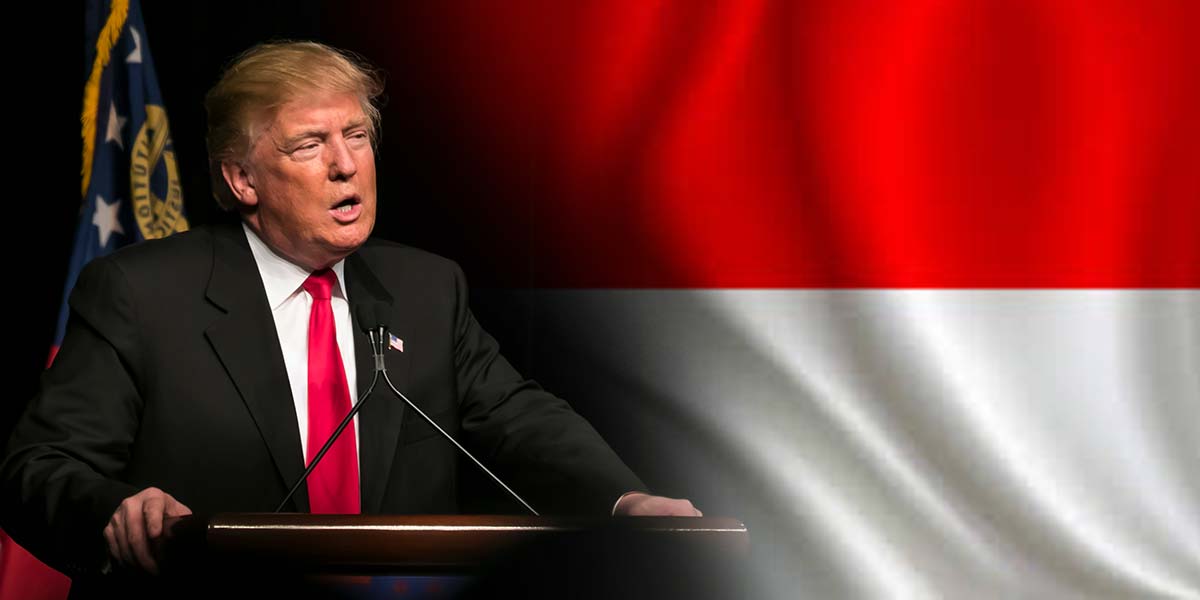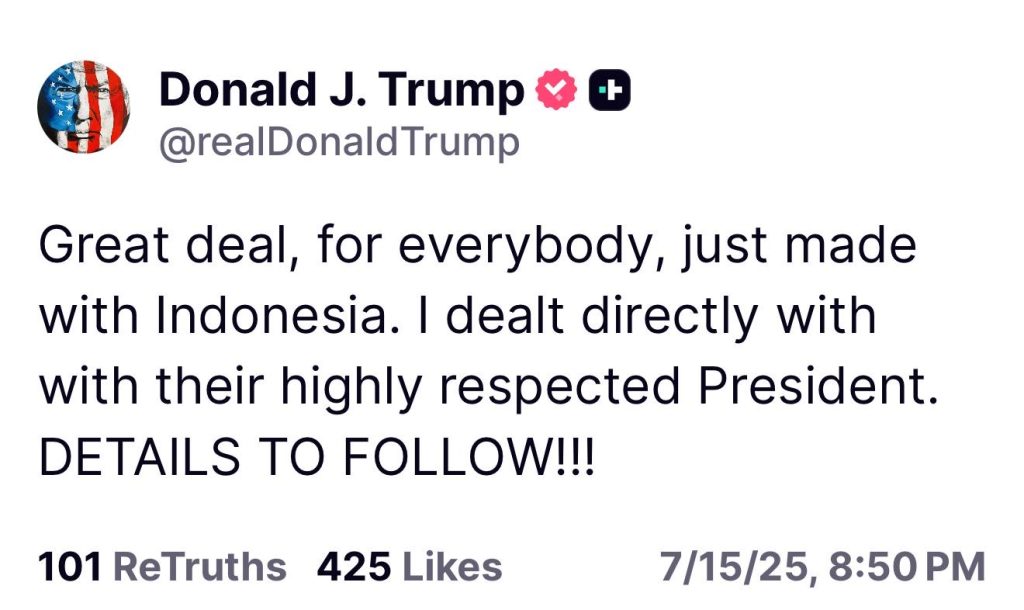On Tuesday, President Donald Trump announced that he has secured a new agreement with Indonesia, following a recent threat to impose a 32% tariff on the nation’s exports to the U.S. In a post on Truth Social, Trump described it as a “great deal, for everybody,” highlighting direct negotiations with Indonesian President Prabowo Subianto as pivotal.
While Trump did not elaborate on the specifics of the agreement, he assured that details would be released soon.
Indonesia ranks among the U.S.’s top 25 trading partners, with bilateral trade volumes surpassing $38 billion in 2024, according to data from the Commerce Department. Last year, the U.S. experienced a trade deficit with Indonesia amounting to $17.9 billion.
This announcement mirrors Trump’s earlier statement on July 2 about a trade pact with Vietnam. Similar to his recent revelation about Indonesia, his initial comments regarding the Vietnam deal were sparse on specifics, though a subsequent update disclosed that the agreement included a 20% tariff on imports from Vietnam.
It was reported last week that Vietnam believed it had reached an initial understanding with the United States to significantly reduce tariffs on its exports. However, at the eleventh hour, according to Politico citing several sources, Trump unexpectedly increased the proposed tariff rate, leaving the Vietnamese government at odds over a central aspect of the deal that he promoted online last week.
As detailed in Trump’s announcement on July 2 in his Truth Social post, Vietnamese exports to the U.S. would face a 20% tariff—lower than the 46% rate that had been suspended in April—or a 40% tariff if the products originated outside Vietnam. In return, Trump claimed, Vietnam had pledged to open its market to the U.S., allowing goods to enter Vietnam tariff-free.
The news rattled officials in Hanoi, who, according to the four sources, had been under the impression that the U.S. tariff would be closer to 11%. This discrepancy emerged after Trump, during a call with General Secretary Lam—who was not previously engaged in the negotiations—insisted the U.S. would apply a much higher rate, almost double what Vietnamese negotiators anticipated.






